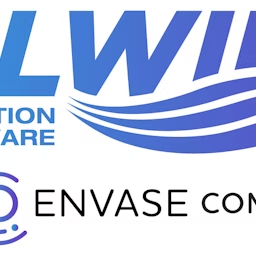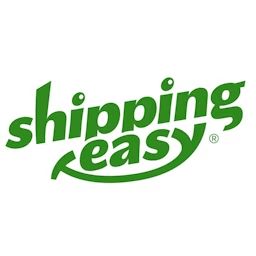In this report, we define and compare freight and shipping software solutions to help you decide which one aligns with your business goals.
While logistics play an important role in any business, shipping and transportation businesses face several logistical challenges such as reverse logistics management and inefficient route management. If you are a logistics or supply chain manager facing similar issues, you must consider using a freight or shipping solution. But how do you decide which one to choose?
Freight software and shipping software are often mistaken for one another as both these tools facilitate shipment tracking and management. While the two platforms do have a lot in common, they are not exactly the same. If you do not understand the differences and specific features, you might end up investing in a solution less appropriate.
Below, we'll talk about the similarities and differences between the two software categories to help you understand which one is better suited for your needs.
What is freight software?
Freight software, also known as freight management software, streamlines the process of moving freight from shippers to brokers, carriers, and recipients. The software assists shipping and logistics companies with their freight management operations, including carrier selection, documentation, supply chain warehousing, and distribution processes for both domestic and international shipments. Freight management solutions can handle ocean freight, ground freight, and air freight operations.
Key features of freight software
Some of the primary features of freight software include:
Accounting: Offers a built-in accounting tool or integration with a third-party accounting system to facilitate logistics and freight accounting processes.
Customer management: Captures and stores customer information and interactions for future reference.
Customer portal: Allows customers to access their freight shipment information and manage their accounts via a self-service portal.
Dispatch management: Automatically assigns resources and personnel to a site as per requirement.
Document management: Provides a centralized system for managing and storing important documents, such as freight bills, bills of lading, and custom forms.
Quotes and estimates: Generates proposals for customers, including shipping prices, custom fees, and handling costs. Maintains a central repository of previous estimates.
Rate management: Optimizes shipping rates based on multiple parameters, such as volume and weight of the shipment, mode of transport, material, and due date.
Shipment tracking: Assigns tracking numbers to shipments and tracks orders in real time. Provides updates on freight shipment status.
Examples of freight software
These five products, listed in alphabetical order, are taken from Capterra Shortlist report for freight software. (See the end of this piece for the full methodology for how these products were chosen.)
Trial/Free Version
- Free Trial
- Free Version
Device compatibility
Trial/Free Version
- Free Trial
- Free Version
Device compatibility
Trial/Free Version
- Free Trial
- Free Version
Device compatibility
Trial/Free Version
- Free Trial
- Free Version
Device compatibility
Trial/Free Version
- Free Trial
- Free Version
Device compatibility
What is shipping software?
Shipping software allows businesses to coordinate and streamline their shipping processes. The software facilitates shipment tracking, freight forwarding, document management, resource scheduling, quote generation, and logistics operations. It automatically calculates shipping prices based on the weight of the shipment, dimensions, and carrier and assists freight managers with the purchase and printing of shipping labels.
Shipping tools commonly integrate with fleet management and eCommerce solutions to provide real-time shipping updates for your consignments.
Key features of shipping software
Some of the primary features of shipping software include:
Activity dashboard: Offers a dashboard to create and manage shipments.
Air shipping: Manages and tracks the shipment of goods sent via an air carrier.
Alerts/notifications: Sends automated text or email messages to customers and freight managers, informing them of the delivery progress, shipment delays, cancellation, and other shipment issues.
eCommerce management: Integrates with eCommerce solutions to provide a streamlined experience with respect to shipping and delivery.
Ground shipping: Manages and tracks the shipment of goods sent via ground shipment vehicles, such as railroad freight cars and truckloads.
Import/export management: Manages global trade operations, including custom processes and inventory management.
Inventory management: Tracks and manages the number of resources available in hand to ensure adequate supply.
Invoice management: Generates professional-looking invoices.
Order management: Tracks and monitors customer orders.
Reporting/analytics: Generates shipping and logistics reports, such as shipping spends, compliance, region-specific delivery, and courier performance reports.
Shipment price calculation: Calculates shipment prices based on shipment size, weight, route, time frame, and carrier choices.
Shipment tracking: Offers end-to-end delivery tracking, including the real-time location of the products and return order tracking.
Shipping labels: Generates shipping labels for all online orders.
Shipping management: Manages and tracks orders being sent and delivered to customers.
Examples of shipping software
These five products, listed in alphabetical order, are taken from Capterra Shortlist report 2022 for shipping software. (See the end of this piece for the full methodology for how these products were chosen.)
Trial/Free Version
- Free Trial
- Free Version
Device compatibility
Trial/Free Version
- Free Trial
- Free Version
Device compatibility
Trial/Free Version
- Free Trial
- Free Version
Device compatibility
Trial/Free Version
- Free Trial
- Free Version
Device compatibility
Trial/Free Version
- Free Trial
- Free Version
Device compatibility
What do they have in common?
Both freight and shipping software solutions are logistics platforms that:
are used to automate logistics involved in the transportation of goods by air, land, or sea.
help manage shipments, inventory, and customer information.
commonly integrate with enterprise resource planning (ERP) and supply chain management systems.
Which tool is right for your business?
Although both freight and shipping software solutions facilitate the transportation of goods, freight software usually helps with bulk transportation. Therefore, if you are looking to manage goods on a larger scale, which involves managing multiple shipments bundled together over longer hauls, you can consider freight software for your business. The software streamlines the majority of processes for commercial freight businesses, including the planning, execution, and management of bulky freight transportation.
Shipping software, on the other hand, can be considered for both commercial and non-commercial purposes. Unlike freight, shipping tools can also be used for handling the transportation of goods on a smaller scale.
Once you’ve decided which software to use, head to our freight software and shipping software category pages, where you can find a sortable list of products and software reviews from verified users.
If you want to narrow down your search to only the most popular and highest-rated solutions, visit Capterra Shortlist reports for the top freight software and shipping software solutions—our reports are based on an analysis of thousands of user reviews.
How to choose the right logistics tool for your business
Investing in the right logistics software ensures that your orders reach the customers without any hassle, among other benefits. Here are a few factors that you can consider before selecting the best possible logistics solution for your business.
Consider international shipping assistance: If you need to deliver goods worldwide, it is best to consider a tool that helps you with customs and taxes. Select a software solution that can calculate taxes and duties for international shipments and generate custom forms and other necessary documents. Your software should also provide multi-language and currency support to facilitate seamless cross-border transactions.
Look at the customer support options: The logistics industry never sleeps; therefore, it is advisable to select a software provider that offers an efficient customer support system, including 24/7 phone and live chat options, to ensure smooth assistance at any point in time.
Consider the software price: The majority of logistics solutions are provided as Software-as-a-Service (SaaS), which means that you need to incur annual or monthly expenses based on your subscription. Additionally, the vendors charge implementation and support fees that should be taken into consideration before arriving at the final price.
Common questions to ask while selecting a logistics tool for your business
Here is a list of some of the common questions that you can ask vendors before investing in a freight or shipping platform.
Does the software provide shipment updates?
An efficient logistics tool should necessarily provide text/email notifications to update the end users and freight agents about the status of delivery. Before you invest, make sure that the system offers real-time shipment alerts related to order processing, label creation, and shipment delivery.
Does the software offer a reporting feature?
An ideal shipping or freight management system should offer a comprehensive reporting and analytics feature to help you make quick and informed decisions. Before finalizing a logistics platform, make sure that the system is able to generate standard and customized reports, such as daily job, invoice, income, container, and status reports that will help you analyze your shipping operations.
What are the available integration options?
To ensure a seamless shipping and freight delivery experience, make sure that your logistics system integrates with popular eCommerce platforms, such as Amazon and Walmart, along with other necessary solutions, such as ERP, carrier, financial, and warehouse management systems.
Does the software generate invoices and quotes?
Quoting is a time-consuming process that involves procurement of rates from different carriers and selecting the best out of the rest. Similarly, generating invoices can also take time, especially if you are handling multiple shipments at a time. Select a platform that allows you to create and manage quotes across multiple carriers. The software should also be able to generate invoices for products shipped from sellers to buyers.









